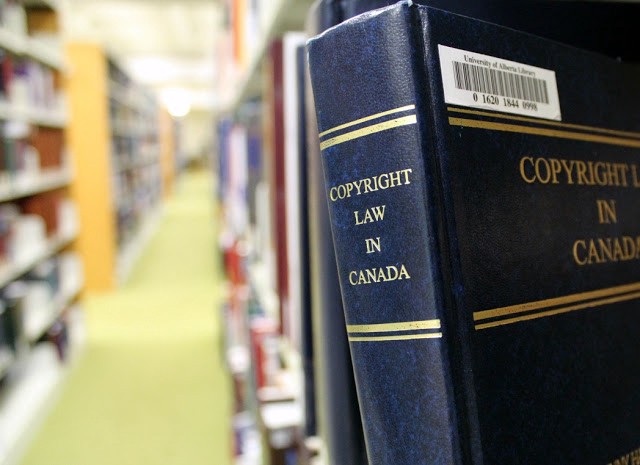
On September 22, York University filed its Notice of Appeal to the Federal Court of Appeal regarding the Access Copyright v. York University case.
York is appealing the decision on both of the two main issues of the case, seeking a declaration that reproductions made under York’s fair dealing guidelines constitute fair dealing under the Copyright Act and seeking to have the Interim Tariff declared voluntary rather than mandatory.
Since the release in July of the initial decision in this case, the University of Alberta has issued an update to its own Fair Dealing Guidelines, although this update is intended primarily to add clarity around the application of the guidelines and does not constitute a substantive revision. These guidelines are reviewed regularly and updated or revised as appropriate.
As was stated in the summer, shortly after the initial court decision was issued, the University of Alberta will continue to respect copyright and continue to apply its fair dealing rights in accordance with a reasonable interpretation of the law.
Updated September 28, 2017.
On 12 July 2017, the Federal Court issued its decision in the case of Access Copyright v. York UniversityAccess Copyright v. York University. There were two main issues of the case: (a) whether the Interim Tariff issued by the Copyright Board at the request of Access Copyright is mandatory and enforceable against York University; and (b) whether York University’s fair dealing guidelines were “fair” in their terms and their application.
The Court found in favour of Access Copyright and against York University on both these issues.
What does it mean for the U of A?
Access Copyright offers copyright licences to post-secondary institutions under certain terms and conditions that allow for limited copying and use of the works in the Access Copyright repertoire. The fees and related requirements are based on tariffs that are set by the Copyright Board.
The Interim Tariff in this case was effective 01 January 2011. York University provided notice to Access Copyright in July 2011 that it would be opting out of its licence agreement with Access Copyright, the terms of which were based on the Interim Tariff (the “institutional licence”), as of 31 August 2011. York took the position that the Access Copyright licence, and the related Interim Tariff, were voluntary arrangements, providing only one of many avenues through which the university could operate in compliance with copyright law. Since 01 September 2011, York University has operated without an institutional licence from Access Copyright.
Any university choosing to operate without an Access Copyright institutional licence is effectively opting to assume responsibility for ensuring that its activities remain compliant with copyright law without the protections (and the accompanying fees and reporting obligations) that come with such an institutional licence. Universities manage their copyright responsibilities in a number of ways: (a) they pay for various content licences from publishers to allow faculty, staff and students to access and use a broad array of online resources; (b) they seek and pay for transactional licences to cover specific copying of certain works that would not otherwise be permissible; and © they rely on fair dealing, which allows for the limited reproduction and use of portions of copyright-protected material without cost, for the purposes of research, private study or education, so long as that use can be reasonably considered “fair”.
In its recent decision, the Federal Court found the Interim Tariff to be mandatory and enforceable against York. Justice Michael Phelan describes the applicability of the tariff in the decision as follows: “If York did not copy any works in Access’s repertoire, if it obtained proper permission to copy those works, or if the copying was exempt by law — the fair dealing defence and counterclaim — then the tariff would not be applicable. Absent these conditions, the tariff is mandatory”(para. 220).
The impact of this ruling on the mandatory nature of the tariff would seem to come into play only in a case where a university was found to have made an unauthorized copy or other unauthorized use of a work in the Access Copyright repertoire. In other words, there was a use by a university of an Access Copyright repertoire work that was not covered by another university licence and that use is beyond what is permitted under fair dealing or any other exception or user right in the Copyright Act.Copyright Act.
While York chose to operate outside an Access Copyright licence in 2011, the University of Alberta did not make a similar decision until the end of 2015. The Interim Tariff that is applicable to York in this case could be applied retroactively against York for any unauthorized use of applicable copyright-protected materials after 01 September 2011. For the University of Alberta, the impact of this ruling could have prospective application to its activities since 01 January 2016, but this application would not be in relation to the Interim Tariff from this case but to a subsequent tariff.
Presumably, the mandatory nature of the tariff would dictate the amount a university would be charged for such unauthorized use. When universities chose to opt-out of the Access Copyright institutional licence, they understood that they would be responsible for any infringing use of copyright-protected material. Justice Phelan seems to have determined that the mandatory tariff is the appropriate means to determine the damages for such infringement by universities.
In its recent decision, the Federal Court also found that York’s fair dealing guidelines were not “fair”.
In 2012, the Association of Universities and Colleges Canada (AUCC), now Universities Canada, developed a set of fair dealing guidelines for post-secondary institutions, which have formed the basis of most institutional fair dealing guidelines at universities across the country. These guidelines were not intended to replace a full fair dealing analysis as outlined in CCHCCH (2004 SCC 13), but to provide an efficient, easy-to-use tool intended to allow institutions and their staff and faculty members to make general, quantitative determinations regarding what constitutes a “short excerpt” of a work for the purposes of fair dealing. York has relied on its version of the fair dealing guidelines, just as other universities, including the U of A, have relied on their own versions.
Now that York’s guidelines have been found by this decision not to be “fair”, all universities who have based their fair dealing guidelines on the AUCC guidelines are left to re-evaluate how best to approach making fair dealing determinations moving forward. The University of Alberta fair dealing guidelines were already under review, and this decision will help inform that review. However, the practical benefits for universities of continuing to operate under a set of fair dealing guidelines remain.
The course materials for Fall 2017 are already being processed at the U of A Copyright Office, and the remainder of those course materials will continue to be processed using the current fair dealing guidelines. Should York appeal the Federal Court’s decision (York has until 02 October 2017 to do so), then the review and any revision of the University of Alberta’s fair dealing guidelines in the short-term will likely be impacted by whether the decision is stayed pending appeal, which would temporarily delay Justice Phelan’s ruling from taking effect.
The decision in Access Copyright v. York University was disappointing for universities. Canadian universities generally manage their copyright responsibilities conscientiously through the purchase and licensing of resources and through a considered application of statutory exceptions and fair dealing, respecting the balance between the interests of copyright holders and the interests of users. This balance has previously been recognized and endorsed by Supreme Court of Canada jurisprudence.
Regardless of the outcome of any potential appeal(s) of Access Copyright v. York University, the University of Alberta will continue to respect copyright and continue to apply its fair dealing rights in accordance with a reasonable interpretation of the law.
Please forward any questions or concerns about this post or about any other issue related to copyright at the University of Alberta to the Copyright Office help desk at copyright@ualberta.ca.
Adrian Sheppard — Director, Copyright Office

Adrian has been the Director of the University of Alberta’s Copyright Office since April 2015. One role of the Copyright Office is to educate and inform U of A students, faculty and staff on issues related to copyright. Adrian has an LL.B. from the University of Victoria.